![]() Phillip Chavira talks about why Capitalism is trash, how money is a tool for and against the movement and where we have power to make decisions that center our communities and our values.
Phillip Chavira talks about why Capitalism is trash, how money is a tool for and against the movement and where we have power to make decisions that center our communities and our values.
America’s charitable problem extends far beyond Giving Tuesday, and the Global South is bearing the consequences
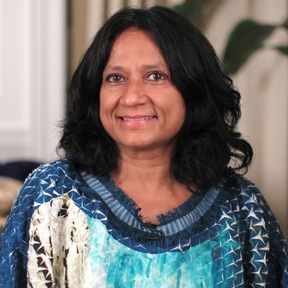 The Tuesday after Thanksgiving has become a charity free-for-all, with pleading subject lines vying for attention as they flood mailboxes. Nonprofit organizations have seized onto Giving Tuesday as an opportunity to reap a kind of fiscal penance after the indulgences of Black Friday and Cyber Monday.
The Tuesday after Thanksgiving has become a charity free-for-all, with pleading subject lines vying for attention as they flood mailboxes. Nonprofit organizations have seized onto Giving Tuesday as an opportunity to reap a kind of fiscal penance after the indulgences of Black Friday and Cyber Monday.
After spending one day feasting and feeling thankful for all we have, and spending the next days consuming even more, it is difficult to turn away from societal injustices like homelessness and hunger.
The annual report that never was …
By Marisa DeSalles and Michelle Flores Vryn
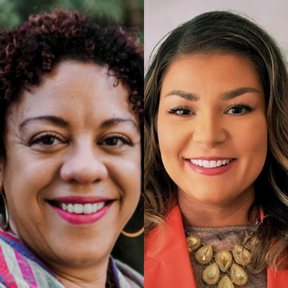
As DEI professionals will tell you, one way to assess the authenticity of your workplace culture is to take stock of the types of messaging that circulate around the office. Are they overwhelmingly positive? (“We received this grant!” “Enrollment goals were exceeded!” “We can make payroll!”)
Seriously though, consider whether you are perpetuating a tone of toxic positivity. If you are, it likely flows over into your external messaging. Like your annual report.
The Ethical Rainmaker: Shattering Fragility with Liz LeClair
![]() Controversial. Polarizing. Divisive. Liz LeClair has gained a reputation for her famous call outs of both sexual assault and racism within the nonprofit world. In S3:E1, Michelle interviews this writer, fundraiser and badass who talks about calling out white fundraisers for their racism, taking responsibility for being part of the problem, and her experience speaking out about sexual harassment in the fundraising space, including cofounding the National Day of Conversation in Canada. “Every generation you either change and evolve or you become irrelevant.” You are going to love this episode.
Controversial. Polarizing. Divisive. Liz LeClair has gained a reputation for her famous call outs of both sexual assault and racism within the nonprofit world. In S3:E1, Michelle interviews this writer, fundraiser and badass who talks about calling out white fundraisers for their racism, taking responsibility for being part of the problem, and her experience speaking out about sexual harassment in the fundraising space, including cofounding the National Day of Conversation in Canada. “Every generation you either change and evolve or you become irrelevant.” You are going to love this episode.
BIPOC nonprofit professionals need and want support
 A group of BIPOC fundraisers and nonprofit professionals began a collaboration to build a movement for racial and economic justice, sharing dreams of a world beyond capitalism and the nonprofit industrial complex. To gauge perceptions of nonprofit fundraising, this group distributed a survey in May 2019. Intended to highlight the thoughts and experiences of fundraisers and presented through a series of infographics, here are some findings from over 2,000 fundraisers and nonprofit professionals surveyed.
A group of BIPOC fundraisers and nonprofit professionals began a collaboration to build a movement for racial and economic justice, sharing dreams of a world beyond capitalism and the nonprofit industrial complex. To gauge perceptions of nonprofit fundraising, this group distributed a survey in May 2019. Intended to highlight the thoughts and experiences of fundraisers and presented through a series of infographics, here are some findings from over 2,000 fundraisers and nonprofit professionals surveyed.
Tis the season: But is Giving Tuesday really community-centered?
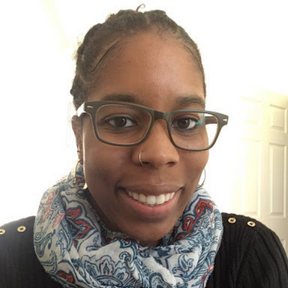
PSL season has started so you know what that means. Thanksgiving. Black Friday. Small business Saturday. Cyber Monday. Giving Tuesday.
It’s the season to give … and give and give.
During the week of Giving Tuesday (or more accurately, the month leading up to Giving Tuesday), you are probably inundated with emails and bombarded with marketing about it. Everyone is writing hot tips and hosting webinars on how you can up your Giving Tuesday campaign game.
Listen to the children … (because the world hasn’t ruined them yet)
 One of the biggest lessons I’ve learned in my first decade of parenthood is that I have so much more to learn from my children than they will ever learn from me. They are curious, kind, and optimistic. They feel their feelings in a big way and have not succumbed to shame and self-doubt. They are excellent at speaking their truth and voicing their own needs. They could probably use some work on their boundaries (who needs privacy in the shower, anyway?), but, if there’s any force that can teach us to be the best, most unapologetic versions of ourselves, it is our children.
One of the biggest lessons I’ve learned in my first decade of parenthood is that I have so much more to learn from my children than they will ever learn from me. They are curious, kind, and optimistic. They feel their feelings in a big way and have not succumbed to shame and self-doubt. They are excellent at speaking their truth and voicing their own needs. They could probably use some work on their boundaries (who needs privacy in the shower, anyway?), but, if there’s any force that can teach us to be the best, most unapologetic versions of ourselves, it is our children.
What TikTok taught me about capitalism and nonprofits
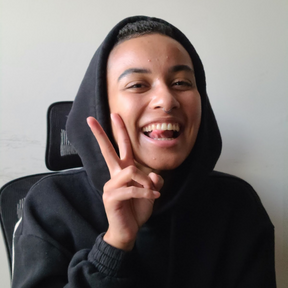 I spend a lot of time engaging with the world virtually these days — especially on TikTok. In addition to viral dances and meme-ified sounds, my TikTok “For You Page” offers videos of creators dancing, making art, sharing their pains and joys, telling jokes, and engaging in political education and discussion. Although I’ve felt particularly isolated during this last year and a half, TikTok has helped me find community and confirm that I’m not the only one frustrated by capitalism.
I spend a lot of time engaging with the world virtually these days — especially on TikTok. In addition to viral dances and meme-ified sounds, my TikTok “For You Page” offers videos of creators dancing, making art, sharing their pains and joys, telling jokes, and engaging in political education and discussion. Although I’ve felt particularly isolated during this last year and a half, TikTok has helped me find community and confirm that I’m not the only one frustrated by capitalism.
7 tips to write content that is more accessible
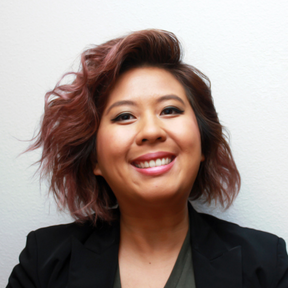 I think we’re all a bit prone to thinking that accessibility is tied to technology — like a website’s coding, the structure of a PDF, metadata, whatever — and so we think that accessibility is an ‘expert’s domain,’ like we kinda assume it’s the web developer or graphic designer’s job. But actually, accessibility comes in really varied forms, including how we write. And this is cool because just about everyone writes and reads, which means everyone can play a part in creating more accessible content.
I think we’re all a bit prone to thinking that accessibility is tied to technology — like a website’s coding, the structure of a PDF, metadata, whatever — and so we think that accessibility is an ‘expert’s domain,’ like we kinda assume it’s the web developer or graphic designer’s job. But actually, accessibility comes in really varied forms, including how we write. And this is cool because just about everyone writes and reads, which means everyone can play a part in creating more accessible content.
Here are seven ways to make the written word more accessible.
The top 5 reactions I hear from nonprofit leaders when I bring up ‘inclusive and equitable research and analytics’ — and how I respond
 We, as a world, take pride in our data collection abilities and the evolving technologies at our disposal. However, when we look closely, we often realize that especially in our nonprofit sector, the data we have is flawed.
We, as a world, take pride in our data collection abilities and the evolving technologies at our disposal. However, when we look closely, we often realize that especially in our nonprofit sector, the data we have is flawed.
For far too long, we have ignored collecting critical data points, missed creating healthy dialogues around that data, and we have added our biases to all of it — all of it — to perform research operations and take crucial decisions from it. And, while we leveraged this insufficient data to build our research capabilities, a set of analytics-based terms entered our industry – machine learning, deep learning, and artificial intelligence.
It’s time to rethink ROI metrics in racial justice
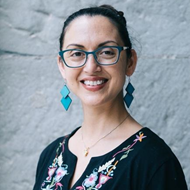 Are you a member of a racial justice team at a white-led organization?
Are you a member of a racial justice team at a white-led organization?
Do you constantly get asked by organizational leaders, “What have you accomplished so far? Your team has been meeting for 6 months, so what has that investment gotten us? Show me the numbers!”?
If so, you are not alone! I have been there, both as a justice team member within organizations and as a consultant working with these teams to build their capacity. This frustration is very common and it exists because there is a dissonance between how organizations invest in racial justice work and the returns they expect on that investment.
Pay me like a white man: Support BIPOC creatives and professionals through tipping
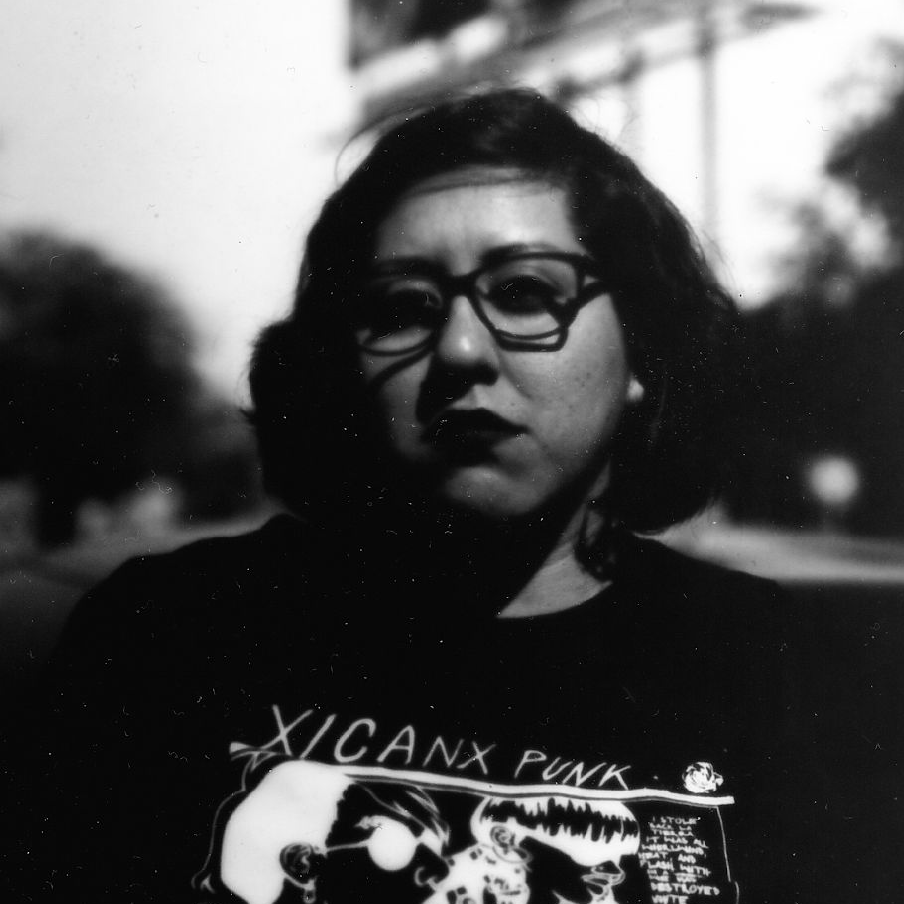 We all know that white men are at the top of the career food chain when it comes to earning power — with white women being a close second. (You need one more sentence, something giving an opinion or more info. Right now, it reads as two separate observations. So you need to supply the “so what” bitty 🙂 )
We all know that white men are at the top of the career food chain when it comes to earning power — with white women being a close second. (You need one more sentence, something giving an opinion or more info. Right now, it reads as two separate observations. So you need to supply the “so what” bitty 🙂 )
There are many ways to tackle this inequity, and I will present a few of my humble offerings towards this goal.
As I’ve grown as a writer, I find that more and more (white) people are sharing my work, whether it be in newsletters, curricula, or lesson plans. While that is amazing and gets my name out there, it doesn’t always turn into a type of quantifiable success. BIPOC writers don’t generally see extra income from the sharing of our work.
